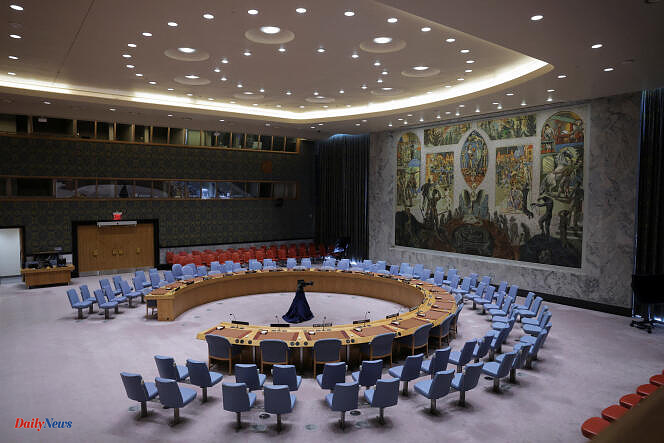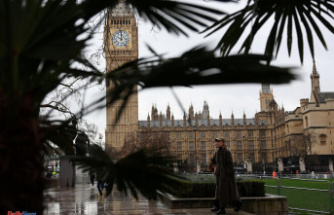After more than five months of conflict, the United Nations (UN) Security Council adopted its first resolution on Monday, March 25, calling for an “immediate ceasefire” in the Gaza Strip for the duration of Ramadan and the release of all hostages held by Hamas. The United States, which had vetoed previous texts, abstained this time, allowing the adoption, by fourteen votes, of this resolution.
The Israeli government said the American abstention was harming war efforts and the release of hostages in the Gaza Strip. “This is a clear step back from the consistent position of the United States in the Security Council since the start of the war” on October 7, declared the office of Israeli Prime Minister Benjamin Netanyahu, who canceled the departure of a delegation to Washington.
"We are very disappointed that they are not coming to Washington to allow us to have a substantive conversation about credible alternatives to a ground operation in Rafah" in the southern Gaza Strip, said John Kirby, Port - spokesperson for the American National Security Council.
President Joe Biden had in fact asked Mr. Netanyahu to send a team to the United States for consultations concerning Israel's plan to launch a large-scale offensive on the city of Rafah, which Washington opposes.
“Not a change of direction.”
Mr. Kirby added that the U.S. abstention was not “a change of course.” He also clarified that the United States did not vote in favor of the text because it lacked “essential” elements, such as a condemnation of Hamas. The US ambassador to the UN, Linda Thomas-Greenfield, said a ceasefire could only begin with “the release of a first hostage”.
Until now, Washington, Israel's main ally, had vetoed several resolutions calling for a ceasefire. But with more than 32,000 dead in the Gaza Strip, according to Hamas, and the risk of famine in the besieged Palestinian territory, the United States had said it wanted to redouble its efforts for a truce.
The text voted on Monday “demands an immediate ceasefire for the month of Ramadan”, which should “lead to a lasting ceasefire”, and “demands the immediate and unconditional release of all hostages”. Ramadan started two weeks ago. French diplomacy, for its part, calls for a permanent ceasefire and ensures that it is preparing a resolution to this effect.
“For five months, the Palestinian people have suffered terribly. This bloodbath has lasted too long. It is our obligation to put an end to it. Finally, the Security Council is taking its responsibilities,” welcomed the Algerian ambassador, Amar Bendjama, quoted by Agence France-Presse (AFP). A decision also welcomed by the Secretary General of the UN, Antonio Guterres: “This resolution must be implemented. Failure would be unforgivable,” he wrote on X.
US “Hypocritical Show”
Earlier in the day, China announced its support for this new draft resolution. “We hope that the Security Council will approve it as soon as possible and send a strong signal to stop hostilities,” said Lin Jian, spokesperson for the Chinese Foreign Ministry. The vote, which was scheduled for Saturday, was postponed until Monday, to try to avoid another failure.
On Friday, Russia and China vetoed an American draft resolution emphasizing the need for an immediate ceasefire in the Gaza Strip, in connection with negotiations for the release of hostages captured during the Hamas attack on October 7 on Israeli soil.
The rejected American text did not explicitly call for an immediate ceasefire, using wording considered ambiguous by Arab countries, China and Russia, which denounced the "hypocritical spectacle" of the United States.
All weekend, eight of the ten non-permanent members of the Council (Algeria, Malta, Mozambique, Guyana, Slovenia, Sierra Leone, Switzerland, Ecuador) worked on this new draft resolution. The latest version seen by AFP “demands an immediate humanitarian ceasefire for the month of Ramadan (…) leading to a lasting ceasefire.” She also calls for the “unconditional” release of the hostages and the removal of “all obstacles” to humanitarian aid.
The Council, largely divided on the Israeli-Palestinian issue for years, has only been able to adopt since October 7 (out of eight submitted to the vote), essentially humanitarian. Without much result: after five and a half months of war, the entry of aid into the besieged Gaza Strip remains largely insufficient and famine looms.












